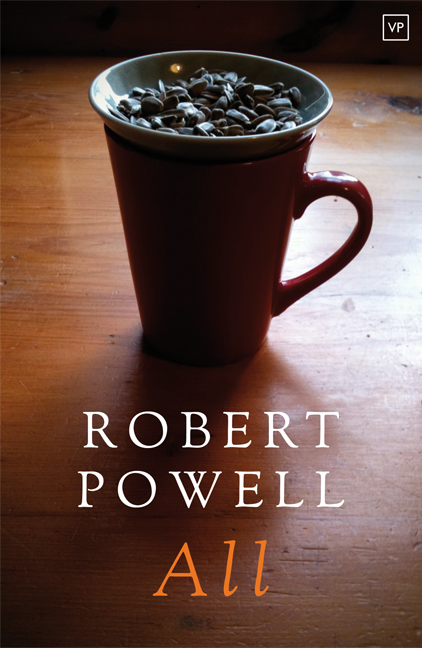Two Valley Press pamphlets: ‘Form’ by Carl Potter and ‘Phobia’ by Jo Brandon
-Reviewed by Judi Sutherland–
Form – Carl Potter
There are flashes of real originality in Form, a new pamphlet from Yorkshire poet and journalist, Carl Potter. The strong opening poem ‘Explaining to Joshua why Snowmen Have to Melt’ discusses the illusion of permanence: ‘Our victory was fantasy / snowblind I and loveblind boy’. Potter goes on to discuss marriage, urban decay, old age and modern culture and media, in a small gathering of fourteen poems. ‘Imperfect German’ is a heartfelt account of an elderly person’s World War II ‘stories of heroes, courage and gin.’ ‘Tiger Hunt’ describes a mysterious encounter in the marshes that pivots around a lovely line: ‘The shock of claws on feather’. A banker ultimately ‘decides to invest in Lithium’ in ‘Stock Market Crash’. Potter is alive to the wider world as well as to his own experiences and relationships.
‘Poor Horsforth’ is an elegy to a northern town that is being regenerated as a tourist destination. Potter likens it to a patient being resuscitated on a hospital bed:
Doctor, we’re losing him
the vital signs are flatlining!
Give me forty ccs of heritage stat!
Put plaques on the houses, drain the people,
put them in jars.
Flood it with formaldehyde.
Potter rapidly shifts his metaphor; it seems that the doctor’s efforts were in vain and the town, unrevived, now needs to be preserved in death. For me, the extract quoted above gathers two possible metaphors and jumbles them together in an enthusiastic wish to use every good idea at once. His poems do suffer a little from an attempt to cram everything in.
Sometimes Potter’s tone lapses into an unconvincing vernacular. Potter uses a range of movie dialogue to comment on contemporary culture, as in the angry and disturbed voice of ‘Walter Mitty Character’, a poetic experiment that for me, doesn’t quite pay off:
I’m thinking everything’s different now, everything’s changed.
This abuse of my body must stop, every muscle must be tight.
As soon as I get out of here I’m gonna find you.
I will find you, I will find you and I will kill you.
I’m number one. King fucking Kong!
Potter is an observer of life and society. His poetry as demonstrated in this pamphlet is a little raw in style; some clarity and organisation is needed, but this is a voice that, with time and maturity, should emerge as a lucid commentator on human nature and the world we live in.
Phobia– Jo Brandon
Jo Brandon, a former editor of Cadaverine, the poetry e-zine for the under-30s, has published her first pamphlet, Phobia. She divides the book into two sections; ‘Fear’ and ‘Caution’. The opening poem, ‘These Bones’ is an account of the surreality of seeing one’s own body as an X-ray:
you expect to see your heart resting mid-chest
like a set of bloody, unfeathered angel’s wings
and you think you see your soul as a shadow on the film
Brandon goes on to consider the strangeness of adolescence in ‘Arachne-phobia’ and playground bullying in ‘Flying Bricks’ where; ‘her long smile hits you, just there, in that place you thought was safe’. ‘Gamophobia’ (the fear of marriage or commitment) is a succinct comparison of marriage to cooking, which can be haute cuisine or a cindered disaster. Then there is ‘Mottephobia’ which I had to look up, but it is a fear of moths; a poem occasioned by a visit to a butterfly house. This first half of the pamphlet deals with growing up and an uneasy transition to adulthood. Brandon is still only 26; it’s interesting to read her account of the strangeness of this metamorphosis. Her poems give us a dispassionate account of the fears; displaying a welcome objectivity rather than a position of teenage angst.
‘Caution’ is a more varied selection of poems with a slightly lighter tone, many of which comment on what it is to be female. ‘Our Lady’ questions a picture that the Bible and centuries of religious art has presented to us:
I commissioned her to paint me a smiling Mary
in red and black, Warhol style
give her the look, I said, she would have had
the day Joseph believed her story, lent his name.
Brandon provides portraits of a number of women; ‘Kathy’ from a dating ad, the first Lady Hamilton, and the demotic washerwomen in ‘Laundry’ who are somehow the moral guardians of their society, pronouncing on scandal and reputation. The conversation rings true.
Brandon’s language is clear and contemporary, and her images vivid and well placed. In ‘Picking’ she recalls memories of ‘belly-cramps from overeating / berries sugared with mud’, in ‘Wool’ she pictures the ageing of women’s hands ‘days feel shorter, rings tighten, skin / eats up banded gold’.
Brandon’s work is vigorous and well-observed. It will be interesting to see how her style develops in future poems.




